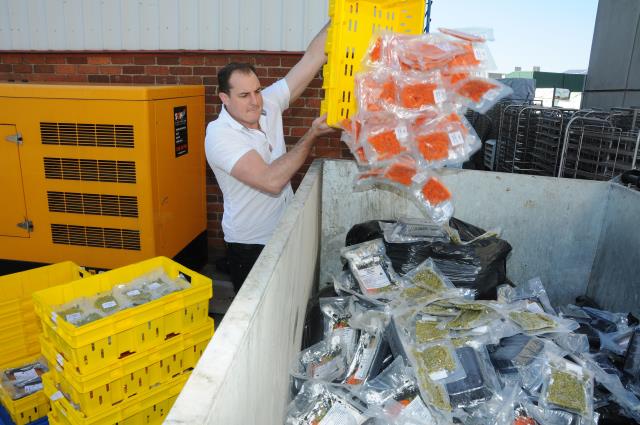
by Cam Lucadou-Wells
I Cook Foods managers say their business was unsustainable under an “unworkable” ‘test-and-hold’ regime imposed by the Department of Health and Human Services.
ICF is suing the department for alleged misfeasance in the shutdown and destruction of its family business in early 2019.
Then-Acting Chief Health Officer Brett Sutton ordered the closure as part of an investigation into the death of an 86-year-old listeria-infected patient at Knox Private Hospital.
ICF argues that Dr Sutton acted with “reckless indifference” to whether ICF’s food was “unsafe” or “unsuitable” as well as to the likely harm to the business.
Production manager Ben Cook told the court on 10 August that after the closure, the DHHS required ICF’s meals to be microbiologically tested before being released for Meals on Wheels, aged care homes and hospitals.
The regime was “unworkable” because some of the foods had a shelf-life of five days, whereas testing could take up to seven days.
“Even if compliant with test and hold, it would be out of date and I couldn’t use that product anyway.”
In any case, ICF was forbidden to handle raw food, cook it and pack it on site, Mr Cook said.
He said he tried to protest to DHHS that the ‘test-and-hold’ procedure was designed for abbatoirs and smallgoods primary producers, but was told it was necessary for listeria.
By early March 2019 – 1-2 weeks after closure – ICF’s customers sent show-cause notices and terminated contracts.
On 28 March, Dr Sutton revoked the closure order “out of the blue”. But without most of its client base, ICF could no longer operate, Mr Cook said.
Prior to the closure, ICF complied with Greater Dandenong Council environmental health officers’ orders for a commercial listeria cleandown and a chlorine fogging of the premises.
It was the first of 37 corrective actions required under the council’s Food Safety Order, which was handed down two days before the shutdown.
Initially, staff cleaned down the kitchen using a chlorine-based solution.
After a further inspection, ICF hired a forensic cleaning company for a $12,826 listeria-contamination clean including all benchtops, waste bins, ovens, trays, basins and trolleys that evening.
After a next-day inspection on 21 February 2019, Greater Dandenong inspectors claimed the clean was ineffective, Mr Cook said.
On body-cam footage shown to the court, an inspector claimed there was a “whole heap of dust” on trolleys and a chuck-cloth caught in a trolley wheel.
“Did the company last night clean the trolleys?
“You’ve gone to this effort to get commercial cleaners and we’re concerned it’s all been undone.”
Another Greater Dandenong inspector takes a phone call, and returns to tell ICF to cease production under the order of Dr Sutton.
However, Dr Sutton didn’t formally sign the closure order until that night, and the closure orders were posted on the premises early the next morning.
At this stage, no DHHS officers had inspected the premises.
The afternoon before the closure order, ICF organised a $2376 chlorine fogging process.
Before the fogging, the contractor’s pre-testing found the premises was already “ultra-clean” and “very clean”, Mr Cook told the court.
The contractor asked if ICF still wanted to go ahead.
“I said of course, I want to be as compliant as possible,” Mr Cook said.
The contractor’s report post-clean confirmed ICF was compliant with acceptable listeria levels. It was provided to DHHS and Greater Dandenong the next day, Mr Cook said.
In cross-examination, DHHS’s barrister Christopher Caleo asserted that ICF knew that samples of its food taken at the premises on 1 February 2019 had tested positive for listeria mono, as well as previously in 2017 and 2018.
On all of those occasions, the listeria levels were within safe limits under Australia New Zealand food standards, Mr Cook said.
“I know that listeria is a very serious pathogen.
“It is ubiquitous. It does occur from time to time – it’s how you manage it.”
Mr Cook said that after its closure, ICF requested lab results for the 1 February samples. DHHS wouldn’t provide them.
As part of the closure, Dr Sutton ordered ICF to destroy its stocks of food – estimated to be worth $700,000, owner Ian Cook told the court.
The business made more than 50,000 meals and sandwiches a week and turned over $6.8 million a year, Mr Cook said.
Forty-one employees lost their jobs.
The trial continues.






